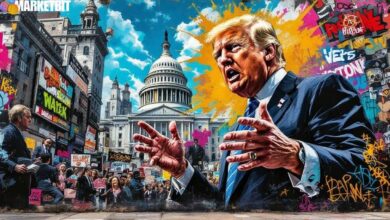U.S. Senate Moves Trump Tax Reform Bill Forward

- Main event includes Senate vote and legislative leadership.
- Focus on digital asset regulation.
- Projected economic growth and associated concerns.
The U.S. Senate has advanced the Trump Tax Reform Bill, spearheaded by Majority Leader John Thune. The bill includes significant measures related to cryptocurrency regulation, drawing attention from various sectors.
The Senate’s decision signifies an important shift in U.S. tax policy and digital asset regulation. Early market reactions suggest optimism for economic growth despite some fiscal concerns.
The Senate, led by John Thune, passed the Trump Tax Reform Bill with measures impacting digital currencies. President Trump expressed support for fast-tracking the reforms. The package is expected to boost investments substantially.
Donald Trump, Former President of the United States, – “The Senate just passed an incredible Bill that is going to make America the UNDISPUTED Leader in Digital Assets — Nobody will do it better, it is pure GENIUS! Digital Assets are the future, and our Nation is going to own it. We are talking about MASSIVE Investment, and Big Innovation.” [Source: Truth Social]
Key figures such as John Thune, Mike Crapo, and Donald Trump are driving the bill. Its adoption aims to create a permanent framework for taxing and regulating digital assets, including stablecoins like USDT and USDC.
The bill could lead to increased investment and creation of over 1 million jobs. Concerns remain about the fiscal impact, which may raise national debt. Digital assets could see institutional interest.
Industry and government stakeholders recognize potential opportunities for technological advancement. Cryptocurrency regulation, especially for stablecoins, is expected to bolster clarity and foster market trust.
Analysts predict financial and regulatory changes could lead to innovation in the crypto space. Historical precedents suggest growth in market infrastructure and investment, aligning with legislative goals for economic stability. Current analysis from the Congressional Budget Office suggests that any growth in government revenues will likely be outweighed by increased debt-service costs from elevated interest rates.




